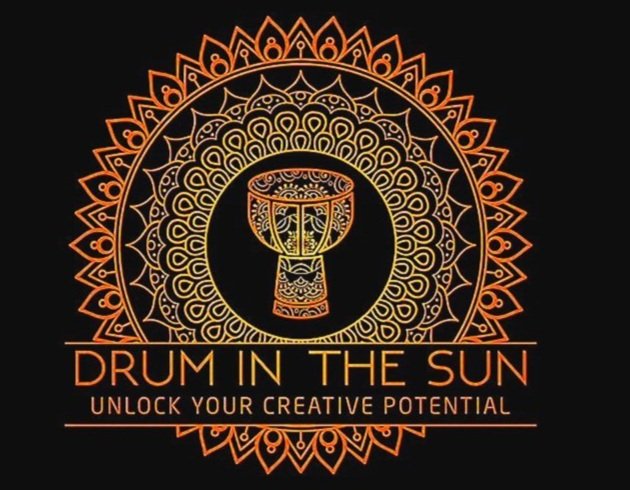Join our eight-week group class
BOOK NOW
Every Tuesday, 7 PM - 8 PM | Aug 19th - Oct 7th 2025
Empowered Expression
This immersive 8-week course focuses on the celebratory and richly layered rhythm known as Djansa (also spelled Dansa)—a vibrant 4/4 rhythm from the Kayes region of Mali. With its driving swing, call-and-response foundation, and room for expressive solos, Djansa offers the perfect bridge between structured ensemble playing and spontaneous musical creativity.
This course is designed for students who have completed foundational djembe training and are ready to explore longer phrasing, more intricate accompaniments, and the subtle art of musical interplay.
Djansa is more than a rhythm—it’s a feeling. It’s the joy of community celebration, the pulse of movement, and the foundation of many modern West African performance pieces. You’ll learn not just to play the notes, but to feel the dance behind the drum.
🥁 What You’ll Learn in This Group Drum Class
Call and Connection
In djembe music, the call (or break) and the accompaniments offer more than musical structure — they foster presence, awareness, and unity.
The call is a short, intentional phrase used to start or stop rhythms and bring the group together. Accompaniments offer grounding, meditative grooves that soothe the nervous system and invite deep listening. Together, they form a rhythmic pathway toward healing and connection.
Texture, Clarity, and Flow
Refining your tone and slap technique adds depth, nuance, and expression to your playing.
Daily rudiments become rhythm rituals — sharpening your hands, ears, and awareness. Through tone–slap contrast, your playing shifts from mechanical repetition to fluid, expressive flow. This is where rhythm becomes something you live, not just play.
Rooted Expression
The accompaniment solo is your first step into creative drumming. It grows naturally from repetition — from feeling the groove settle into your body.
You’ll explore short solo variations based on Accompaniment #1, designed to expand vocabulary and movement while staying deeply rooted in the rhythm. This is where personal expression begins.
Precision, Energy, and Intentional Soloing
Phrase-based soloing brings contrast, clarity, and direction to your drumming.
These longer rhythmic statements strengthen timing, control, and confidence — giving your rhythm a voice that is bold, purposeful, and alive. As your groove awareness deepens, so does your ability to play with intention.
The Heartbeat
The dundun family — Dundunba, Sangban, and Kenkeni — is the foundation of the djembe ensemble.
While the djembe may lead, it’s the dunduns that hold the rhythm steady and give it shape. In this class, you’ll learn three traditional-style dun parts that deepen your timing, listening, and connection to the ensemble. They are the rhythmic roots that keep the music grounded.
Collective Rhythm, Shared Intention
Unison breaks are powerful moments of group alignment — where every player locks into the same phrase and the rhythm breathes as one.
Used to start, end, or shift the energy, these breaks bring clarity and momentum to any piece. More than a technical skill, they develop trust, timing, and group cohesion — a reminder that drumming is a shared journey
Why Djansa?
Djansa is both grounding and expansive. It works the hands, sharpens the ears, and calls out the joy of participation. You’ll learn how to keep the groove steady while also pushing your edge—adding solos, unison breaks, and playful moments of surprise.
In many ways, Djansa sits at the heart of djembe playing. Its phrasing and structure prepare students to tackle more advanced rhythms while reinforcing the communal language of call, response, and groove.
Whether you’re seeking more precision, greater freedom in your soloing, or simply more connection through rhythm, Djansa delivers.
Cultural and Historical Roots
Where Djansa Comes From
Djansa originates in Kita, a cultural and spiritual hub in the Kayes region of Mali. This region is known not only for its musical heritage but also as an important stop along the Dakar–Niger railway and a site of religious pilgrimage, trade, and agricultural activity. The rhythm evolved in a place where community, ceremony, and daily life were—and still are—deeply intertwined with music.
The Spirit of Celebration
The term Dansa (or Djansa) is connected to the Jansali, a celebratory moment where individuals present gifts—or even criticisms—to the hosting family during festive gatherings. It’s a rhythm of revelation and expression, designed to uplift the community and encourage heartfelt sharing.
In everyday speech, the phrase “There is a Jansali in this family” means that a celebration is taking place. That spirit of joy and connection permeates the way Djansa is played today—open-hearted, energetic, and full of life.
Musical Structure
Binary Timing: Djansa is built in a 4/4 structure, where each beat is subdivided into four sixteenth notes.
Swing Feel: What makes it distinctive is the swing—the slight delay on the second and fourth subdivisions—creating a relaxed, danceable groove that feels both grounded and fluid.
While the djembe often takes the lead in modern performance, Djansa’s solo voice was traditionally played on the Djeli Dundun, a smaller, goat-skinned bass drum worn with a strap and paired with a bell. It offers a melodic, percussive counterpoint to the main groove and is still used in certain traditional ensembles today.
Who This Course Is For
This course is for students who:
Have completed a Level 1 beginner or equivalent experience
Are confident with basic djembe and dunun techniques
Are ready to move into structured soloing and complex ensemble playing
Are curious to learn more about rhythm as a cultural language, creative outlet, and meditative practice
Want to join but not sure if its right for you? Book a introductory lesson and see what drumming can do for you
Book a 30min intro lesson Here
*** Pre-requisite: Level 1 or permission from the teacher. Message Timothy directly Here with any questions ***
Join our eight-week group class
BOOK NOW
Every Tuesday, 7 PM - 8 PM | Aug 19th - Oct 7th 2025

